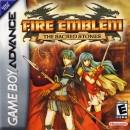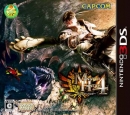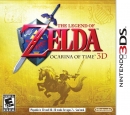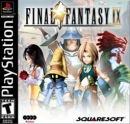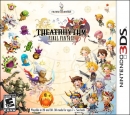Let me start by saying happy birthday, Grand Theft Auto III! GTA III turns 11 years old today :)
Ok, so as many of you might know, video game publications love lists. Top 10 of this, top 25 of that. One of the most popular lists is "top 10 most influential games." More often than not, Grand Theft Auto III appears on these lists. In many cases, it is #1. But sometimes I wonder if its influence is overestimated.
I would like to make a case that GTA III is not QUITE as influential as is commonly argued.
There is no doubt that GTA III set the gold standard for mature-themed open-world action-adventure games in 2001. It spawned several highly-acclaimed sequels, influenced games like Crackdown and Saints Row, and inspired more than a few copycat games such as The Simpsons: Hit & Run. But how influential is it? Grand Theft Auto was a revelation because it synthesized already established gameplay elements into a gritty, adult-oriented crime saga where players could do almost anything. But the foundation for GTA III had been established years earlier, as early as 1986 with The Legend of Zelda, and then again in 1998 with Ocarina of Time.
The original Zelda set the stage for open-world, non-linear gameplay, and Ocarina built upon those ideas with an immersive, open-ended world that seemed to unfold with or without the player participating. Of course GTA III was an evolution of the type of game Ocarina represented. There were fewer barriers in GTA III, thematically and physically. Players could wander almost anywhere, and put the main storyline on hold indefinitely. Still, in many ways GTA III is Zelda in an urban setting.
The real revolution in GTA III was "emergent gameplay," which is a big idea with many definitions. I guess most simply it refers to video game mechanics that change according to a player's decisions and actions, but in Grand Theft Auto III emergent gameplay is better defined as a series of random in-game events caused by the interraction of unrelated actions and routines. Fleeing from a bank robbery and running into a traffic jam, for example. Yet here there are problems also.
Emergent gameplay was done much more convincingly one year earlier in Deus Ex. Players in Deus Ex had a hundred different choices to make, all of which had some bearing on how the game unfolded, how NPCs reacted to the hero, what kind of attributes he would have, etc. Within the framework of Deus Ex, players were asked to solve problems using imaginative solutions and with as much creative freedom as technologically possible -- very much like Grand Theft Auto III. The tools were there; it was up to the player on how exactly to use them...or misuse them.































